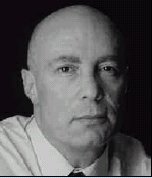
Minutes of Board meeting, James Paget Hospital, 29 July 2005
DUAL OPERATOR

Minutes of Board meeting, James Paget Hospital, 29 July 2005
The Chief Executive commended Mr John Petri, Consultant Orthopaedic Surgeon for eliminating his waiting list by running dual operating theatre sessions.
Mr Petriís patients are given a date for their operation when they see him in the outpatient clinic and only have to wait 2-3 weeks to go through the pre-operative assessment programme and ensure their fitness for surgery.
Mr Petri has been nominated for a national award in innovation and leadership in the NHS and is one of two finalists.
Annual Report James Paget Health Care NHS Trust 2004/5
Mr John Petri, one of our orthopaedic consultants, has introduced dual operating lists and dramatically reduced his waiting list for surgery. Two adjacent theatres work co-ordinated as one, on the same operating list.
Mr Petri explains: "Now I have trebled the number of operations and my waiting list is on its way to extinction. This could not have been achieved without the faith, dedication of all the staff and, in particular, the operating theatre team. They could teach a thing or two to the best hospitals in this country.
We look forward to when our achievement is known nationally and we can say that waiting lists are not an inescapable fact of life.
House of Commons Hansard debate for 2 Nov 2005
Mr. Bob Blizzard (Waveney) (Lab) :
I can tell the Chamber Ö that at my local hospital, the James Paget healthcare trust, patients of orthopaedic surgeon Mr. John Petri do not wait for six months or 18 weeks. Mr. Petri, as I told the Prime Minister this afternoon, has no waiting list at all. Let me explain how that remarkable achievement came about.
John Petri used to work in France. When he arrived at the James Paget, he could not understand why we had long waiting lists. The hospital at which he had worked in France was of a similar size, serving a similar size of population with fewer resourcesóbut with no waiting lists; they were unheard of. At James Paget, there were twice as many orthopaedic surgeons and twice as many anaesthetists as in his hospital in France, but they worked in a different way, in different hours, and performed fewer operations.
In France, it was normal for a surgeon to work with two teams in two theatres, moving, after scrubbing up, straight from an operation in one theatre to another in a second. Here, he found that after an operation it was normal for a surgeon to sit around drinking tea and waiting for his one team to prepare the next patient for the same theatre. That is what is wrong with the surgery system in our hospitals. In a typical three-and-a-half-hour operating session, only two hours of a surgeon's time may actually be spent operating. As Mr. Petri put it, if we were running a factory, we would not allow our most important and expensive machine to stand idle for that length of time. I would suggest that the same is true of a surgeon in a hospital.
There was another key difference. The French hospital had three theatres, compared with two at James Paget. We have the wrong balance of resources between surgeons and theatres. In about 2000, when Mr. Petri saw more resources coming in to the NHS, he put a proposal to the management of the hospital to introduce the dual operating system there. That was when I first met him. He felt that orthopaedic patients were being let down by the NHS; there was something seriously wrong and they deserved better. Sadly, the other surgeons at that hospital did not wish to change. They said that dual operating would not work and so, at that time, did the Royal College of Surgeons. However, the chief executive of the hospital, David Hill, and his managers backed John Petri.
In 2001, Mr. Petri began a pilot scheme of one dual operating session a week, and his team visited France to see the system in operation. Quickly, his waiting list for hip operations reduced from one year to three weeks. The system worked, but more theatre space was needed for it to continue. A business case was put to the strategic health authority, and it supported it with £2 million for a new theatre, which was opened in 2003. Dual operating was phased in as additional theatre and ward staff were recruited, additional beds opened and the process was refined.
Dual operating has been running fully in 2005. Mr. Petri performs two such sessions a week in addition to one conventional session. It involves his being allocated two theatres for five hours instead of the conventional three and a half hours. Both theatres are fully staffed, and he operates on one patient while the next is prepared in a second theatre. He then moves on to the second patient, leaving a support doctor to complete the first operation by stitching up and such like. By the time he has finished in the second theatre, a third patient is waiting for him in the original theatre, and so on. He can perform two or three major operations and four or five minor ones in a five-hour session, compared with one major and a couple of minors in the conventional way. There is more flexibility and there are fewer cancellations.
Trial figures show that in 50 operating sessions, John Petri performed 270 operations. Two colleagues, in 50 sessions each using single theatres, totalled 225 operations. That is why John Petri now has no waiting list. Not only is he maintaining that position, he is now taking patients off his colleagues' lists, reducing waiting times across the hospital.